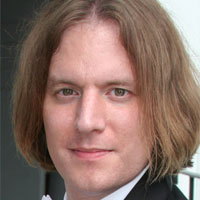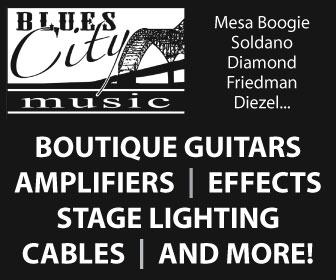Hjörtur
A Look At The Music Scene From Denmark
Music is the great universal constant. The connection that music brings between people is so great that NASA even chose golden records to send the message of humankind into the heavens. While most music is made and distributed on a local or national level, its effects are felt in culture, fashion and entertainment around the globe. The Internet has built upon the reach of television and radio to create a true mass market, the ultimate worldwide distribution channel.
Hjörtur Blöndal, born in Iceland and currently living in Denmark, has combined a diverse selection of musical styles, cultural influences and musical roles, to build an eclectic career. The multi-instrumental singer, performer and producer displays an intimate knowledge of worldwide musical trends. While some of the words and letters might seem strange to American and European fans, the sounds and message will be immediately familiar. No less than the bluegrass Americana folk hit "I Am a Man of Constant Sorrow", from the 2000 Coen Brothers movie "O Brother, Where Art Thou?", is covered on his most recent CD release, 2002's "Keen Sabid". Track number two on the disc is called "New York Woman". All of a sudden, Denmark doesn't seem all that far away.
"Keen Sabid" is Hjörtur's third album. In addition, he has participated in over 150 recordings as a producer or supporting musician. He is now looking to expand his exposure in the United States, to return his own music to the world which from which he has taken his muse. Chorus and Verse is proud to give him the opportunity to help him in this endeavor.
American fans who hear your latest album, "Keen Sabid," will immediately notice your cover of "I Am a Man of Constant Sorrow" from the "O Brother, Where Art Thou" movie soundtrack. How did you first become familiar with that song and what drew you to add it to the album?
I heard the songs for the first time when Danish TV showed a sequence from the film. When I got it on DVD as a gift from my son, Kris, I absolutely felled in love with the film, and in particular the song "I Am A Man Of Constant Sorrow". I remember when I was recording the vocal, it felt like I was there, in the mountains, on the train and so on. It was really a great feeling.
Traditional American roots music wouldn't seem to be an obvious influence for the more modern and progressive sounds that mark most of your music. How do traditional styles complement what you do, and do you find inspiration in other forms of music, such as blues or jazz?
You see, I am from Iceland and the island is right in the middle of the Atlantic Ocean, between UK and USA. In my youth there was, and still is, an [American] military base in Keflavik, Iceland. There was this American radio station we use to listen to, together with the Icelandic radio playing music from England. So, together with that, we have a strong Icelandic music tradition. From that, I feel I have a little of all those influences in me and, later, I got the Celtic influence from Scandinavia, where I live now, in Denmark.
Talk about the rest of "Keen Sabid". How long did the nineteen tracks take to record and produce? Do you produce your music live in the studio, or is there a heavy production process where you add layer after layer until you're at the final result?
Yes, this is a little special. It took me about one month to record the album. When I work, I work very fast. I can do that because I have a long experience recording, producing and arranging music, so that is not a problem for me. This gives me the time to focus on the creative process. Most of the songs are written, played, arranged, recorded and mixed in one session, normally about 10-18 hours. Most of the songs are finished during the session and I am not into doing things over and over again.
How has your sound evolved since your 2000 album release "Humanize"? Is most of your work the result of experimentation, or do you have a specific direction that you're looking to take your music?
"Humanize" is a very electronic album and "to my future" is more "analog" with lots of guitars and "live" stuff. I think my latest album is a mix of these albums. When I think of it, it becomes more obvious to me that I had to do the first two albums to get the songs out of my head and into the open. It was like a "must do" thing. "Keen Sabid" was more like a play to me. I had lots of fun doing it. When I start making an album I have absolutely no idea what it will end up like, and that is the good thing about it.
In addition to your three-album catalogue, you've produced and performed on over 150 albums for other artists. To what do you owe your success and popularity as a collaborator? Are there certain collaborations of which you're especially proud?
Well, first, I am an easy going fellow! I am good to catch up with the technical evolution and the most important thing is keeping the overview of the production even when you go deep into the details of the production. I have worked with many good Danish artists and, most of all, I am glad that they have all been very nice working with. You see, it is important to me that I like the people I work with. And, yes, I have said no to some productions.
What makes a good producer? Are there certain qualities that you look for in artists whom you are interested in working with?
How can it be, that I have lived my whole life [with no one] asking me that question?! There are several kind of producers today. The old type, like Jeff Lynne, you know, get the people together in the studio and play some songs. In that case, it is very important that the producer can keep the overview and can hear what's good and what's not so good, and still get the band to do the best they can. On the other hand we have Moby, doing it all by himself. Most important is the result, what ends up as the finished music, not how you get there. What I look for in artists is if they have something unique and that they know what they want.
Rewind and talk a little bit about your introduction to music. When did you first start becoming attracted to music, and decide to pursue it as a career? Do you have formal training as a musician, or have you developed your style and technique on your own?
I started to play when I was about 19 years old. I studied at art collage in Reykjavik, Iceland, at that time and there was a friend from the collage who knew some musicians who wanted to start a band. He asked me if I was interested, and I said yes. Then, I picked the bass and started to play. I thought it was the easiest instrument to play, you see, only four strings! I have never had any training and I only play when it is needed. Today, I play bass, guitar, keyboard, percussion and drums. I have no intentions being a good musician, I only use the instruments to express myself.
How did your career as a producer begin, and what were the early breaks that gave you the opportunity to work with artists in the studio? While many people may know what bands go through to build their reputation as an artist, how does a producer go about building a reputation and getting their name out there as someone other musicians want to work with?
Soon after I started playing, I wrote my first song. At that time, I decided to build my own studio in Iceland so I could record my music. Then I started recording other artists as a technician and got lots of experience that way. In the eighties, I moved to Denmark and got a job in a big studio in Copenhagen. From that time, I started producing. I was very lucky to get that job. The studio was owned by the biggest record company in Denmark, so I got in contact with lot of great artists.
What is the music scene like in Denmark? Are there venues where bands can perform to gain experience and build an audience? What are some of the main media outlets where fans can follow their favorite music?
There is lot of good music in Denmark, and many bands and artists playing in small clubs. But, it can be hard to make it, like in other places. The population in Denmark is [about] 5,500,000. We have the four major labels, Sony, EMI, Universal and BMG control the market. There are some very good artists having success in the rest of Europe. I can mention Swan Lee, Junior Senior, The Superheroes, Sabia and, a couple of years ago, world-wide success by Aqua. We have one big radio station, Danmarks Radio, and lot of small local radio stations. If an artist is to sell some records, the only real channel is thru Danmarks Radio. We also have [about] eight Danish TV channels but they are not doing very much to spread the local artists. If they are sending music it is mostly from the majors. Then, we have a very positive MTV Nordic where they are playing very interesting music from Scandinavia. That is helping the small ones a lot.
Who are the performers who are influencing the styles and sounds in your part of the world? How much does American popular culture resonate among artists in Denmark?
I think that is pretty much the same as in the rest of the western world. I keep tabs on the US Top 20 on MTV and there is not a big difference to the Danish Top 20. There is a little more influence from England on the Danish chart. Right now there is a big wave of Coldplay-affected bands here. Two years ago it was Travis. We also have some good rappers, R&B and soul artists with heavy influence from USA.
Have you had an opportunity to tour and perform outside of Denmark? Have you any plans to travel to other parts of Europe, or the United States?
For the last years, I have been focusing on making and promoting my music in general. I have not been playing live with my new music yet. Some years ago, I played a lot in Iceland and Denmark. Right now, I am looking for a partner to release my records outside of Denmark. When that is settled, I will be all over the world, I hope. If I am needed in some place of the world I will go there and play.
What is your attitude towards digital music and distribution of music over the Internet? Do you consider digital distribution a positive way to spread the word about your work?
For me the Internet is great! I would never have had the chance to get in touch with you if it wasn't for the internet. It is great that people all over the world can hear the music. I get mails from all around the world. The 'net is great for promoting music. At some time the industry has to find out how to get paid for the music. My suggestion is to make it easy and cheap to download music.
What is the best way for fans to get their hands on your albums?
http://www.cdstreet.com/artists/aroundthecornerrecords
http://www.cdbaby.com/hjortur
What projects are in store for you in 2003? Are there any plans to record another album of your own, or other projects that you're working on in the near future?
I am planning to do a new album, starting recording in April 2003. I hope that I can do some shows around the world, too. Apart from that, I will do whatever I can to make this planet a better and more peaceful place to live in!
[ Web site: www.hjortur.dk ]

Matt Mrowicki founded Chorus and Verse in 2001. He is a rock star designer and technologist, Internet professional, content creator, and entrepreneur specializing in web development, IT consulting, branding, social media and online marketing. www.imprtech.com









